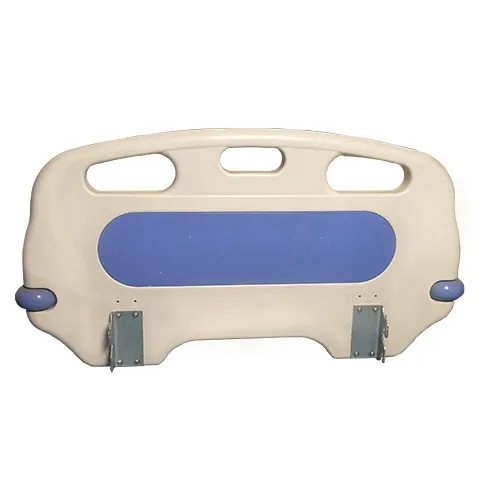Welcome to our websites!
types of rollator walkers
Types of Rollator Walkers A Comprehensive Guide
Rollator walkers have become an essential mobility aid for individuals seeking to improve their mobility and independence. Designed to provide support and stability, these walkers help users navigate various environments, from indoor spaces to outdoor terrains. Understanding the different types of rollator walkers available can aid in making an informed decision tailored to specific needs. This article explores the various types of rollator walkers, highlighting their features and benefits.
1. Standard Rollator Walkers
Standard rollator walkers are the most common type, typically featuring a lightweight aluminum frame, three or four wheels, and a built-in seat. These walkers are designed for users who need assistance with walking but still possess some mobility. The four-wheeled option allows for easier maneuverability, making it suitable for both indoor and outdoor use. The ergonomic handles are often adjustable in height, ensuring a comfortable grip. Many models come equipped with a basket or pouch for carrying personal items, providing convenience for day-to-day activities.
2. Heavy-Duty Rollator Walkers
For individuals who require a more robust walking aid, heavy-duty rollator walkers are an excellent option. These walkers are constructed with reinforced materials to support larger body weights, often accommodating users over 300 pounds. Heavy-duty rollators generally feature wider seats, larger wheels for improved stability, and enhanced durability. They are perfect for individuals who might need to travel longer distances or face rough terrains, such as gravel or outdoor paths.
3. Rollator Walkers with Seats
For many users, the ability to take a break and sit down when tired is crucial. Rollator walkers with seats provide the perfect solution. These walkers not only offer support while walking but also include a built-in seat that is perfect for resting during outings or while waiting. Many models have foldable seats that allow users to carry them conveniently. Some may also feature backrests, providing extra support and comfort when seated.
4. 3-Wheel Rollator Walkers
types of rollator walkers

Three-wheeled rollator walkers are designed for those who need a more lightweight and compact option. Their slim profile allows for easy navigation in tight spaces, making them ideal for indoor use, especially in shops, restaurants, and crowded areas. Despite having only three wheels, these walkers provide adequate stability and support for individuals with mild mobility issues. Their lightweight design makes them easy to lift and transport, which is a significant advantage for people who may need to travel frequently.
5. Folding Rollator Walkers
Folding rollator walkers are perfect for users who prioritize portability and ease of storage. These walkers can be easily collapsed, making them convenient for transport in a car or storage in a small living space. Many folding models incorporate features such as adjustable handles and seats, ensuring a comfortable fit for various user heights. They often come with additional accessories like baskets or trays, facilitating everyday tasks.
6. All-Terrain Rollator Walkers
For individuals who love the outdoors, all-terrain rollator walkers are designed to tackle rough and uneven surfaces. These walkers typically come equipped with larger, more robust wheels and a sturdy frame, allowing for better handling on trails, grassy areas, and gravel paths. All-terrain models often feature shock-absorbing components to enhance comfort when traversing bumpy ground. This type of rollator walker helps users maintain their adventurous lifestyle while ensuring their safety and support.
7. Pediatric Rollator Walkers
Rollator walkers aren’t just for adults; pediatric models are specially designed for children with mobility challenges. These walkers come in vibrant colors and fun designs to appeal to young users. Pediatric rollators are adjustable to accommodate growth and are tailored to provide stability and support for children developing their mobility skills. Features may include a seat for resting, a basket for toys, and narrow frames to navigate through home and school environments easily.
Conclusion
Rollator walkers are invaluable tools for enhancing mobility and promoting independence for individuals with varying levels of mobility challenges. With a variety of types available, from standard and heavy-duty to all-terrain and pediatric models, users can choose a rollator that best suits their lifestyle and specific needs. Whether for short trips around the house or adventurous outings, having the right rollator walker can significantly improve the quality of life for those requiring mobility assistance. Always consult with healthcare professionals for recommendations tailored to personal requirements, ensuring the best choice for mobility support.
-
Navigating the Wholesale Landscape of Electric Mobility Solutions: Key Considerations for Power Wheelchair DealersNewsJun.10,2025
-
Navigating the Wholesale Market: A Comprehensive Guide to Procuring Wheelchairs and Mobility EquipmentNewsJun.10,2025
-
Navigating the World of Wholesale Rehabilitation Equipment: A Guide for DistributorsNewsJun.10,2025
-
A Wholesaler’s Essential Guide to Sourcing Hospital Furniture: Key Considerations with Hebei Boxin Recovery Equipment Co., Ltd.NewsJun.10,2025
-
A Wholesaler’s Definitive Guide to Sourcing Hospital Beds: Key Considerations with Hebei Boxin Recovery Equipment Co., Ltd.NewsJun.10,2025
-
Unveiling the Secrets of Sourcing High - Quality Medical Exam Beds for Sale: A Wholesaler's GuideNewsJun.10,2025
-
Essential Equipment for Ambulance and Emergency CareNewsApr.17,2025











